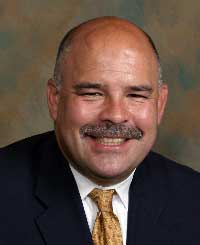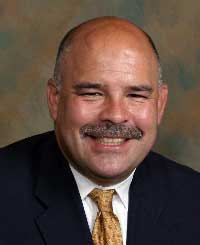
KINGSTON, RI — September 21, 2010 — Professor Esteban Gonzalez Burchard of the University of San Francisco (CA) Medical School will deliver the Lifespan keynote address at the University of Rhode Island’s 14th annual Diversity Week. His talk, “The New Genomics, Changing Conceptions of Race, and the Dawn of Personalized Medicine,” will be presented on Wednesday, Oct. 6, 2010 at 7:30 pm in Room 271, Chafee Social Science Center on the University’s Kingston Campus.
The completion of the Human Genome Project in 2003 provided the medical profession with a powerful array of diagnostic tools that can be used to minimize health care disparities among diverse populations while enhancing the quality of overall health care. Through advances in genetic clustering, genomic sequencing, and genomic mapping, certain populations with commonalities in ancestry have been found to possess shared gene patterns and unique risk factors.
“Standard race categories do not capture the extent of our ancestral diversity,” said Burchard, in discussing his recent study of 3,000 patients using genetic ancestry data to assess the impact on asthma and lung disease. “People throughout the world have a richer genetic heritage than can be captured by our current definitions of race.” Similarities found among populations predispose them toward certain diseases based on their genetic constitution, and the social, cultural, and environment influences to which they have been exposed. The occurrence and significance of variation provide a conceptual basis for the field of genomic medicine as a driver for personalized health care. Building an effective foundation for the future of personalized medicine will require both – the most profound knowledge of the patient’s genomic, social, and cultural characteristics; and the deepest knowledge of the genomic, social, and cultural characteristics of the population that most resembles the patient in the context of the decisions to be made. In the future, health care providers as well as patients will be able to use predictive tools to implement a new model of health care that is proactive, preventive, and safer than current models.
An Associate Professor of Biopharmaceutical Sciences and Medicine at the University of San Francisco, Burchard is affiliated with the Division of Pulmonary and Critical Care in Medicine, and the Division of Clinical Pharmacology in the Division of Biopharmaceutical Sciences and Pharmacogenetics. He also serves the University as Director of the Asthma Genetics Laboratory and the DNA Bank, and as an affiliate of the Medical Effectiveness Research Center.
As a medical student, Burchard conceived the idea for the Genetics of Asthma in Latino Americans (GALA) study, now an international study encompassing 27 cities, which compares the genetic, clinical, and environmental characteristics between Mexican and Puerto Rican asthmatics. His findings revealed that Mexican children tend to have lower rates of asthma and higher rates of responsiveness to albuterol, the most commonly prescribed bronchodilator drug, while Puerto Rican children tend to have higher rates of asthma and less responsiveness to the conventional drug regimen. The study has also identified specific ancestral genetic markers on two chromosomes – from European, African, and Native American gene pools – that protect against asthma in different populations, and control responsiveness to asthma. These findings should help future clinicians by enabling them to improve patient outcomes. An initiator of a parallel project – the Study of African-Americans, Asthma, Genes and Environments – to examine the role of pharmacogenetic, social, and environmental risk factors for asthma among African-Americans, Burchard is also an associate with the Study of Pharmacogenetics in Ethnically Diverse Populations, which is researching genetic variation and its impact on drug responsiveness within and among Chinese-American, African-American, Latino American, and European-American youth in San Francisco.
The work of Burchard and his team has been cited for the utility of ancestry testing in the genetics of asthma in diverse populations by determining the optimum number and type of ancestry informative markers; and for demonstrating previous linkage associations for asthma in diverse populations by combining admixture mapping with conventional regression-based methods of analyzing genome-wide association data. Upon his induction in 2009 into the Association of Clinical Investigation, an honor society of physician-scientists whose research findings have been incorporated into clinical practice, his fellow professionals honored him because “this body of work has established Dr. Burchard as a national and international leader in the genetic epidemiology of diseases in minority populations.”
The Lifespan Keynote Address is sponsored by Lifespan, Inc., Rhode Island’s leading health care provider; the University of Rhode Island, the Multicultural Center, the Office of Student Life, and the Division of Student Affairs.

